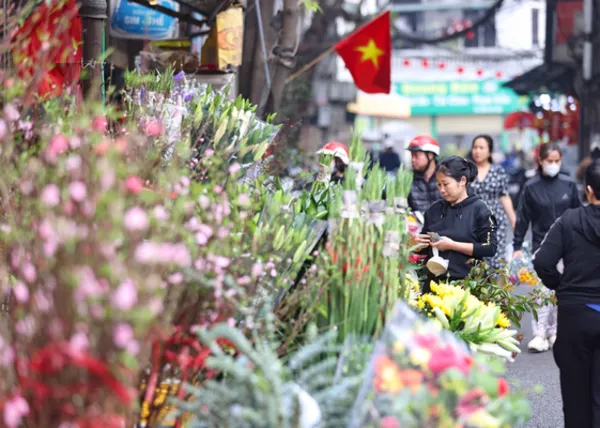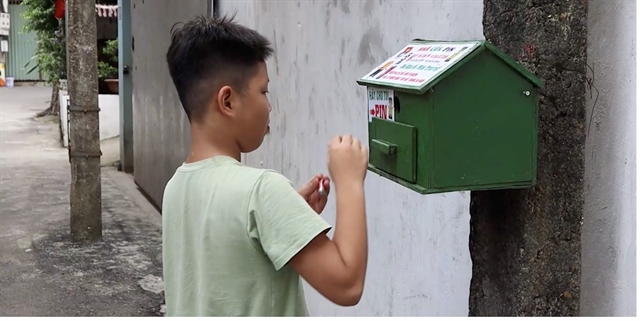 Society
Society

 |
| To attract attention, battery houses are coloured and printed with images and messages, reminding people of the harmful effects of batteries on the environment. Photo laodong.vn |
HÀ NỘI — Aware of the harmful effects of used batteries, which have not been treated when discharged into the environment, Nhuệ Village (Hoài Đức District, Hà Nội) has been implementing the House of Batteries, in order to protect the environment and people's health.
Nguyễn Thị Tính, 55, in Nhuệ Village, used to throw old batteries away indiscriminately or put them in a trash can. Now she is aware of the dangers of batteries to the environment. Tính carefully collects and brings them to "The House of Batteries" – a new movement launched by the village’s authorities.
“My family uses a lot of batteries, but after using them, the children throw them away. Since this model has been implemented, we are very excited,” Tính told Lao Động (Labour) newspaper.
“We keep the used batteries separately, put them in a box, and then take them to the House of Batteries.”
According to Đỗ Văn Ngọ, 60, the “House of Batteries” was an idea of the village’s authorities. It received great support from local people and spread the spirit of environmental protection.
“Batteries are different from ordinary waste. After use, this is again a type of toxic garbage. Therefore, when discarded, it is very important to classify batteries from the source to have separate garbage disposal methods,” he said.
These wooden houses to collect batteries have been set up by families for free.
Nhuệ Village has dozens of such houses installed across the village.
To attract attention, battery houses are coloured and printed with images and messages, reminding people of the harmful effects of batteries on the environment.
A local woman, Nguyễn Thị Kim, 65, said "the battery house model is appropriate, ensuring environmental hygiene and human health."
Once a month, village officials and Youth Union members collect the batteries and take them to recycling plants.
Thousands of used batteries have been collected. This has helped form new habits in waste classification in residential areas, contributing to environmental protection.
Đàm Quang Bính, Head of Nhuệ Village, said that initially six houses were installed. "From the first days, we realised the good results from the model."
"Through the loudspeaker system, we regularly inform local people of the benefits of used battery collection and the harm of leaving batteries in the environment without treatment."
In batteries, there are often heavy metals such as lead, mercury, cadmium and arsenic, which are toxic and dangerous to the brain, kidneys, heart and fertility of humans and one of the leading causes of cancer.
When burying batteries, the heavy metals in the battery seep into the soil, and when burned, hazardous components will pollute the air, so battery collection models like the House of Batteries need to be expanded to protect the environment and health of people. VNS